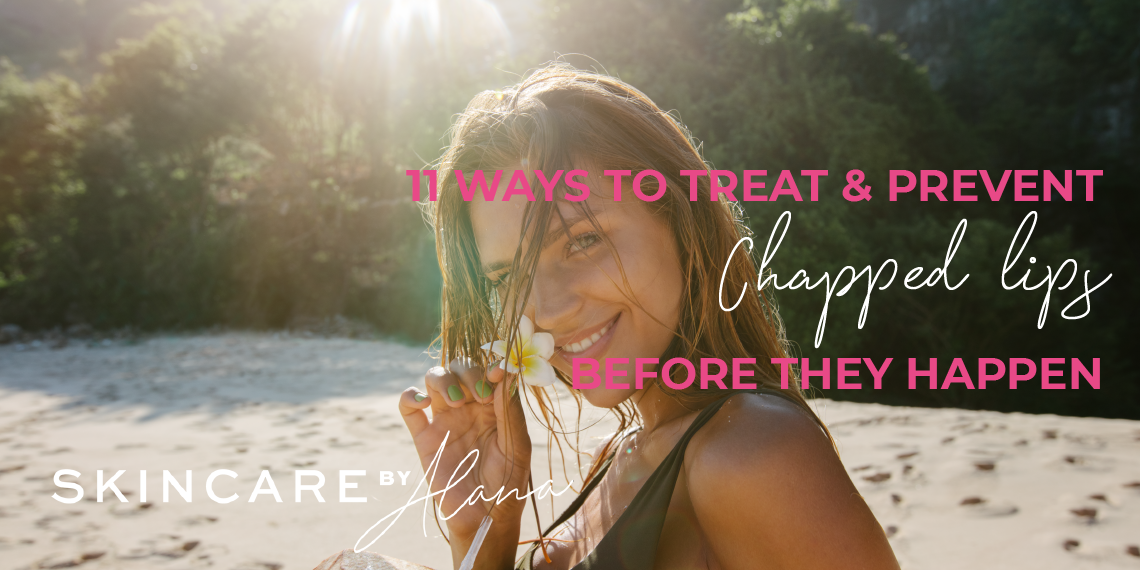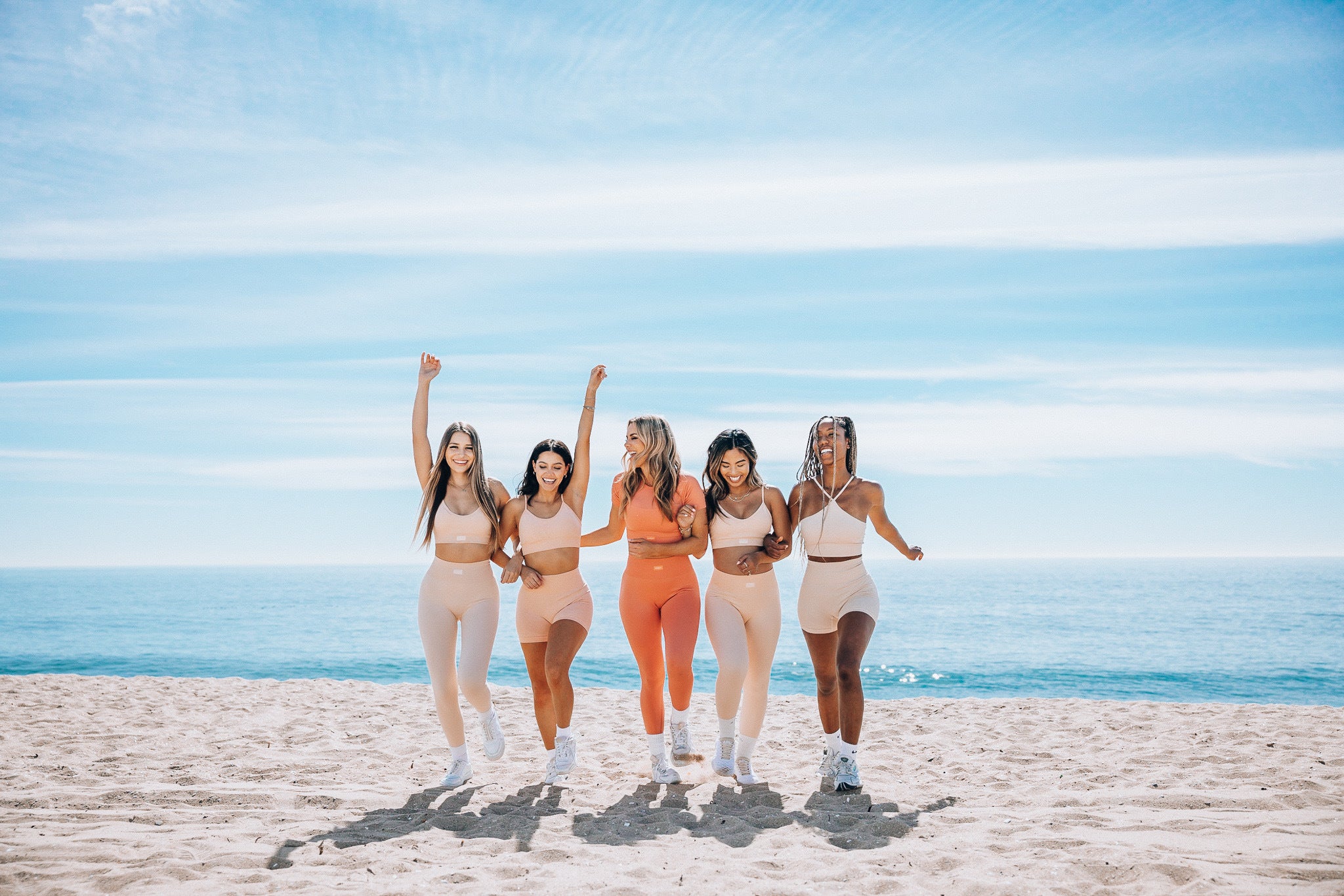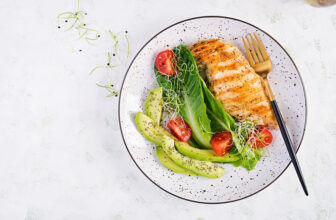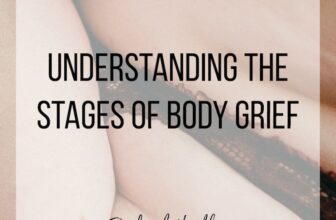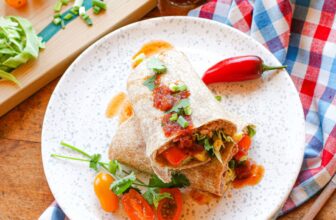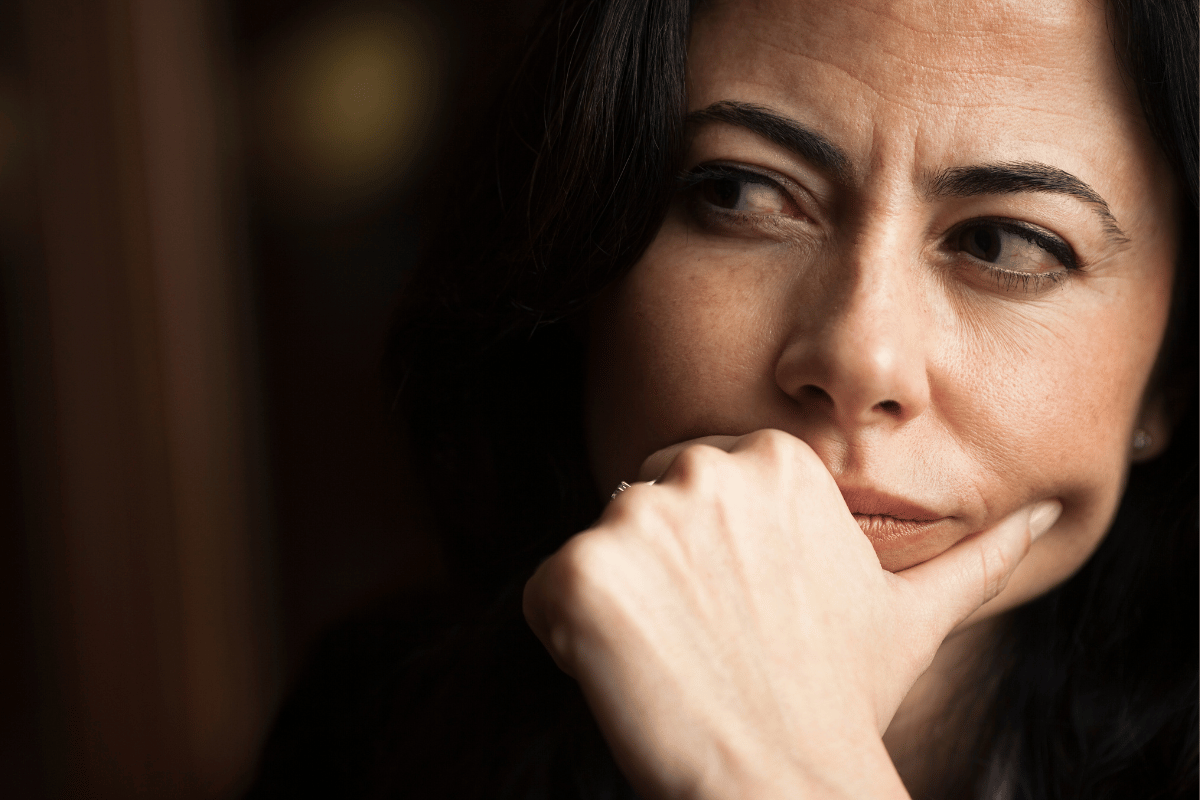
[ad_1]
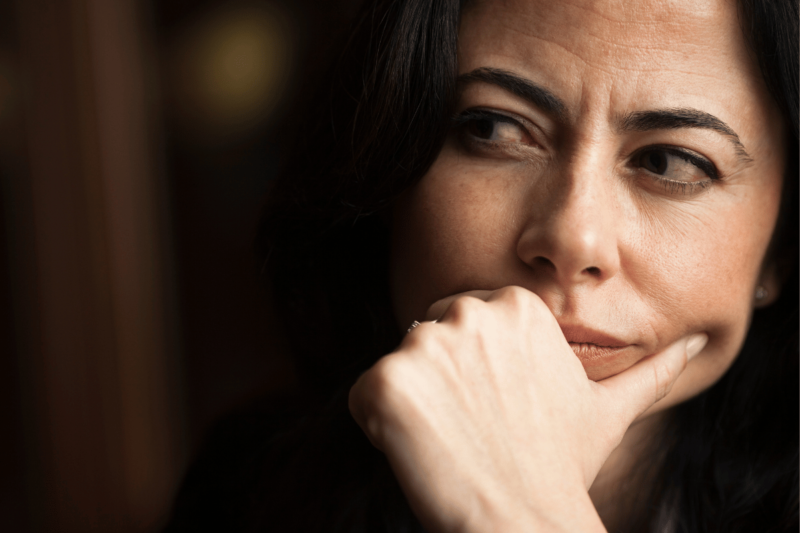
Last week, the Washington Post published the latest in its series of bizzarro hit pieces on registered dietitians. This whole thing started out last September because 17 dietitian “influencers” from the U.S. or Canada posted paid content to their social media followers and did not clearly disclose that sponsorship in at least one of their posts.
Now, disclosure is important (no argument there), but considering there are more than 78,000 dietitians in the U.S. alone, a headline like “The food industry pays ‘influencer’ dietitians to shape your eating habits” is a little overblown.
It also paints the entire profession with a brush meant for a very few. Given that many people read headlines but don’t read the entire article, this pains me. Because, you know, I’m a dietitian.
(Oh, and in case you forgot/didn’t know, I was a nutrition freelance writer for WaPo from 2016-2021)
Flash forward to last week, and we have another doozy of an article. (Every time they publish a new one, I want to ask the reporters, “Who hurt you…and was it really a dietitian?” So many red flags!)
To borrow the title of a Taylor Swift song, are you ready for it? This new article carries the (once again) super-misleading headline, “As obesity rises, Big Food and dietitians push ‘anti-diet’ advice.” I’m not linking to the articles, because I don’t want to give them link juice, but feel free to Google it if you want (possible paywall).
Whew…that’s a lot, especially considering they’re talking about fewer than 27 dietitians (some of them probably from Canada). They’re really going bananas with that paint brush again. Oh, and by “Big Food,” they’re mostly talking about breakfast cereal. Time to clutch those pearls!
There were a lot of things that disturbed me about this shoddy piece of “investigative” reporting.* Let’s get to it, in order of importance.
*Contrast this with the stellar piece of actual health-related investigative reporting from the New York Times over the weekend, “Insurers Reap Hidden Fees by Slashing Payments. You May Get the Bill.”
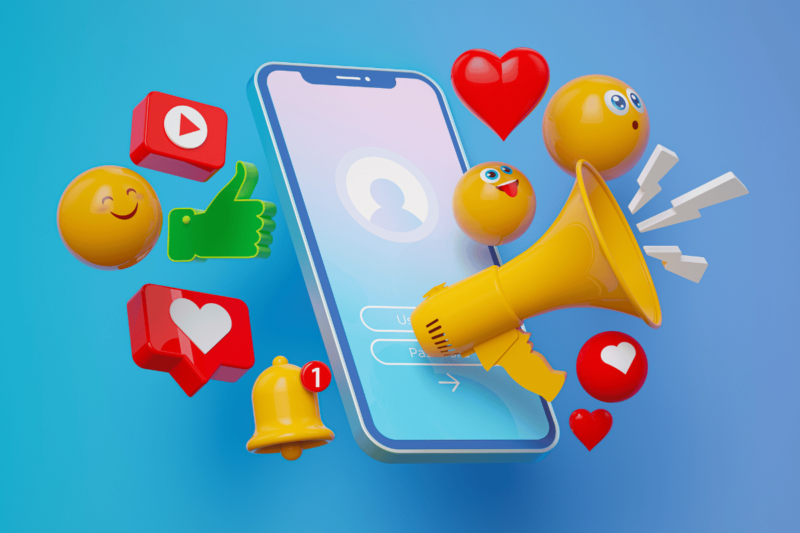
Don’t get nutrition advice from social media
The article leads off with an anecdote from a woman who decided to take nutrition advice from “YouTube influencers” after years of struggling with binge eating, weight loss efforts and hunger. She says she took what they said as a go-ahead to eat “whatever the hell I wanted,” and then gained weight.
O-kay. It’s unclear if this woman has Binge Eating Disorder, which is a clinical eating disorder, but she clearly was in a binge-restrict cycle, which is distressing and a form of disordered eating. She needed real help, not YouTube.
There is no room for nuance on social media. And given that many (most) people on social media are essentially saying “Look at me! Look at me!” with their content, at best an intriguing post should be a catalyst to look for more nuanced information elsewhere to see if what you read is something that may be useful or helpful to you.
I know not everyone can afford to work with a dietitian or therapist to sort through their struggles with food, body image and/or health. But if you’re looking for help from an anti-diet / non-diet / weight inclusive dietitian, there are several excellent books out there that provide information that’s far more nuanced than what you’ll find on social media. (I’ve included a list at the bottom of this post.)
I have decades of experience as a communicator. Also, as a nutrition counselor I’ve often witnessed the impact of social and mainstream media messages on my clients. Not all dietitians have that experience. Whether I’m writing a book, a blog post, an article or a social media post, I think carefully about my words. What am I trying to say? Are the words I choose likely to be interpreted the way I intend? The fewer words used, the greater the risk that the impact will not match the intent.
And I have to wonder, who are these “anti-diet” dietitian influencers? Are they just here for an “anti-diet” party, or have they really dug in and done the work? Are they advocating for stigma-free access to healthcare and freedom from body oppression for ALL bodies, or are they mostly about eating the cupcakes?

No, really, don’t bother reading any research
I feel loads of compassion for the woman featured in the article. Loads. But it is very curious that the reporters choose to center the article on one woman who had a bad experience after following impersonal advice from someone on YouTube.
I suppose it would let the facts get in the way of a good story if they also shared an anecdote from someone who was inspired by an anti-diet dietitian they follow on social media to do their own reading and maybe seek out a knowledgeable, experienced anti-diet dietitian for 1-on-1 work.
I suppose it would interrupt their narrative (cue record scratch) to actually cite any of the research showing that anti-diet / weight inclusive / Health at Every Size approaches can improve health and well-being.
I was a bit startled when the woman at the center of the article says YouTube influencers urged her to “start listening to her ‘mental hunger,’” and that she “grew to believe that restricting food in any fashion would put her health in danger. Listening to mental hunger meant that if she was thinking about a food, she should eat it.”
Reading this, I wondered, again, who were these influencers?
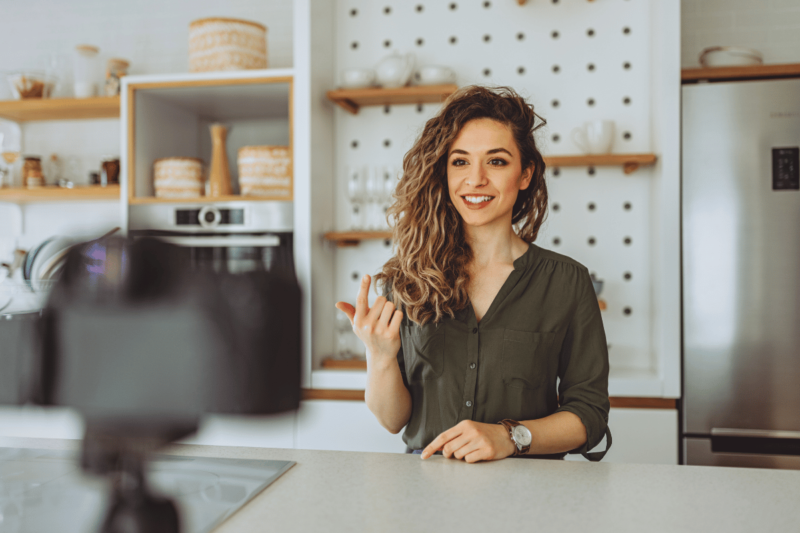
Intuitive eating is not impulsive eating
What does “mental hunger” mean to you? Cravings? Yeah, that’s how I’m reading it, too. One conversation I have with each of my anti-diet, intuitive eating clients at some point is the distinction between a true, genuine craving and an impulsive craving. Honor the former, and hold off on the latter (while exploring it with curiosity), because it usually a whim of the moment.
The other thing I thought of when I read “mental hunger” was the phenomenon of “I’m bored. I’m going to have a snack.” Eating simply because you’re bored is one flavor of emotional eating, and emotional eating is something worth being explored in depth.
In centering this clickbait anecdote, the reporters miss an essential truth about an anti-diet approach: there’s a huge gap between 1) never allowing yourself to have a cupcake and 2) throwing out all semblances of nutrition to go all in on cupcakes.
“Make peace with food” is one of the 10 principles in “Intuitive Eating: A Revolutionary Anti-Diet Approach” by dietitians Evelyn Tribole and Elyse Resch. And intuitive eating is a big part of the anti-diet approach. But intuitive eating is not impulsive eating.
When someone comes to intuitive eating after a long period of mental or actual food restriction, it’s not uncommon to have a “honeymoon period” of deeply exploring formerly forbidden foods.
However, if unconditional permission to eat all foods you enjoy isn’t paired with attunement to hunger, fullness, satisfaction, and how what you’re eating makes you feel physically, things are going to start to feel chaotic. Why? Because you’ve traded one extreme (restriction) for the other. This is where skilled anti-diet dietitians help people find that middle ground of eating for nutrition and pleasure.
Hey, guess what? I even wrote about this for WaPo back in 2019!
Related Posts:

Don’t blame the TRUE anti-diet movement for being co-opted
The reporters really talk (write?) out of both sides of their mouth. On the one hand, they point out that many people are co-opting the actual anti-diet movement:
“now global food marketers are seeking to cash in on the trend”
“a multipronged campaign that capitalizes on the teachings of the anti-diet movement”
“Online dietitians — many of them backed by food makers — are also building lucrative followings by co-opting anti-diet messages”
They even have the sub-headline “How the anti-diet movement has been distorted,” followed by quotes from leaders from the Association for Size Diversity and Health (ASDAH) — not, as the reporters wrote, “leaders of Health at Every Size,” as Health at Every Size (or HAES) is a registered trademark of ASDAH, not an organization in and of itself.
These leaders point out, quite rightly, that their work has been distorted on social media, and that the wide appeal of HAES online has “allowed it to be commercialized,” in spite of the trademark:
“You have a lot of privileged people talking about Health at Every Size, unfortunately, because it’s profitable.
They also quote Intuitive Eating’s Elyse Resch as saying…
…big food companies touting anti-diet slogans are “just trying to make more money, and intuitive eating has been co-opted.”
On the other hand, the reporters blame the anti-diet “movement” itself, not just it’s co-opters:
“The anti-diet approach essentially shifts accountability for the health crisis away from the food industry…”
Right before that last bit, the reporters commit the far-too-common mistake of conflating association with causation:
“Nearly half a million Americans die early each year as a result of excess body weight, according to estimates in a 2022 Lancet study.”
Naturally, I went straight to that study, titled “Excess mortality associated with elevated body weight in the USA by state and demographic subgroup: A modelling study.”
Associated with? Say it with me: Association is not causation!
Hey, WaPo reporters? Maybe you shouldn’t be reporting on anything health-related if you don’t understand that basic, elemental fact. Or maybe it’s just your anti-fat bias showing.
They also write: “the new anti-diet movement is hurting people at risk of health problems…” Wait a minute — the co-opters are NOT the “new anti-diet movement.” They don’t get to define what the anti-diet “movement” is because they aren’t practicing an authentic anti-diet approach.
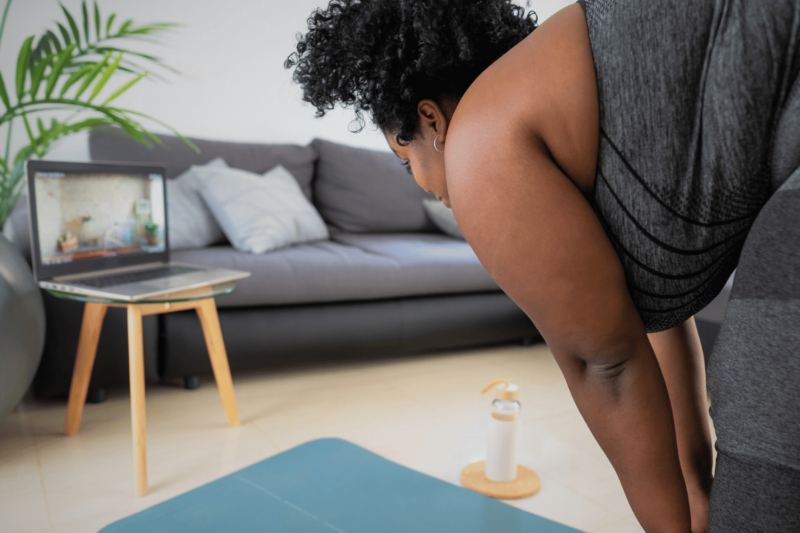
Totally missing the point
Not surprisingly, the article doesn’t actually give the reader an accurate picture of what an anti-diet approach actually is, other than a token phrase that it began as “an effort to combat weight stigma and an unhealthy obsession with thinness.”
It also ignores some simple facts. One is that restrictive diets (anything that creates a calorie deficit) don’t work for the long term, because most people end up regaining most or all of whatever weight they lose. Another is that demonizing foods and constantly beating the weight loss drum can trigger or exacerbate eating disorders in susceptible people.
One person dies every 52 minutes as a direct result of an eating disorder.
The goal of the anti-diet approach is more peace with food and body, which can reduce stress and weight cycling, both of which are good for health. Studies show, that, on average, there’s no weight change with this approach. On an individual level, when moving from dieting to intuitive eating, some people gain weight, some people lose weight, and some people stay around the same. This depends partly on where they at when they started. Were they fresh off a diet and temporarily weight suppressed? Were they binging nightly?
The article quotes its anecdotal woman as saying: “Your relationship with food would just get magically healed, if you just ate the doughnuts and ate the cookies and weren’t afraid of what you were eating.”
No, there’s no “magic” in the anti-diet approach.
It’s a journey, with dips and hills and curves and switchbacks and sometimes two steps forward and three steps back. It’s finally thinking you’ve got this anti-diet, intuitive eating thing down, only to have diet culture unexpectedly broadside you and send you spiraling until you gather your resources and climb out, stronger than before.
People who seek intuitive eating or another anti-diet approach do so because their relationship with food and their body is deeply damaged. They’re grappling with years or decades of yo-yo dieting, restrict-binge cycles, body loathing, food fears and a belief that their worth and their health is dependent on their body size. They may have a clinically diagnosable eating disorder, or they may be flying deeper under the radar with a sub-clinical eating disorder or “just” disordered eating.
They may have restricted and starved and done fasts and cleanses. They may have tried every diet under the sun, restricting fat then carbs then entire categories of food. They may be seeking purity as much as they’re seeking a smaller pants size.
No, unlearning years or DECADES of that so they can heal is not “magic.” It’s a lot of work, but the healing is worth it. My anti-diet/intuitive eating clients start taking care of their physical and mental health in ways that they never did before.
I have a client I’ve been working with for a few years. Her weight stabilized with intuitive eating (no more wild fluctuations as she had when she was dieting). She is now 100% secure and fear-free with her food choices. She enjoys “healthy” food and delicious desserts. She is in balance. She enjoys movement and lives her life fully. And is sad to witness that almost every woman she shares meals has a completely f-ed up relationship with food.
Related Post:
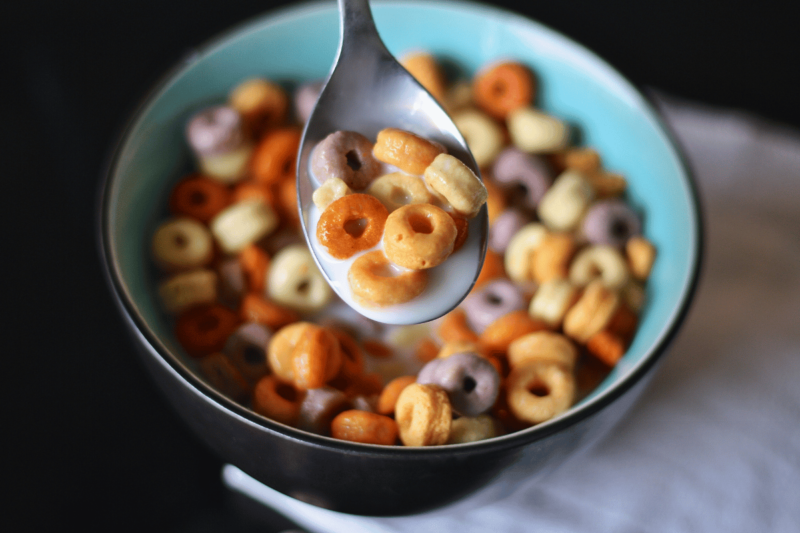
I do wish food companies would knock it off
I don’t subscribe to Big Food conspiracy theories, but anti-diet approaches and Health at Every Size should not be used to promote specific food brands, period.
In the context of the WaPo article, the co-opting comes largely in the form of promoting that eating breakfast cereal is an important part of “breaking the cycle of food shame.” Sorry, but that’s a stretch, and a little offensive.
Is it bad to eat cereal? No. Should someone feel guilt or shame because they ate breakfast cereal? Absolutely not. Is breakfast cereal a great idea of what to eat for breakfast? Eh, not necessarily.
I don’t know about you, but if I eat a bowl of cereal for breakfast, I’m going to be hungry again annoyingly soon. I have had soooo many patients and clients over the years tell me that they don’t understand why they’re hungry an hour after eating breakfast, and that there must be something wrong with them.
I ask them what they’re eating, and sometimes it’s something like a piece of toast with butter and jam (hello…almost no protein), but usually it’s a bowl of breakfast cereal. There’s a reason that so many cereal ads say “part of a complete breakfast.”
If a client is eating something that’s not serving them well — it’s not satiating enough, it makes them sleepy, it gives them heartburn — we’re going to talk about why they like that food, and if they want to continue enjoying it, how to do so in a way that serves them better.
Intuitive eating and other anti-diet approaches are about removing the “good” and “bad” labels from food, in part because we often transfer those labels to ourselves. (“I ate a ‘bad’ food, ergo I am bad.”) But that doesn’t mean that all foods are equal in terms of how they make you feel physically or how they support what you, individually, deems important in terms of your own health.

The infamous FNCE Expo Hall
I laughed at the sentence, “The food industry’s close relationship with dietitians was on full display this past fall in Denver at the Food and Nutrition Conference and Expo, the world’s largest gathering of registered dietitians.”
Yes, much has been made of food industry booths in the expo hall, and I don’t 100% disagree with some of the raised eyebrows. But the way the WaPo article portrays it, it’s like one big carnival of processed food purveyors. Not so.
Yes, there are a few big, flashy booths with gimmicky games or whatnot, but there are also booths for almonds, and walnuts, and pulses, and Bob’s Red Mill! I will NOT stand in line to answer a trivia question or spin a wheel to win a tchotchke that gets left behind in my hotel room. (To quote Ms. Swift again, “you play stupid games, you win stupid prizes.”) But I am down for nuts, beans, lentils and whole grains!
There are several hundred booths in the expo, and I know in advance the dozen or so I want to visit. The rest are just visual noise. In Denver, my expo highlight was fangirling at the NIH Office of Dietary Supplements booth — a booth that’s not sexy enough for WaPo, clearly.
Do I think it’s cool that the three biggest cereal companies are threatening to sue the Food and Drug Administration (FDA) over a proposed rule to limit what food manufacturers are allowed to promote as healthy — because the proposed restrictions would violate their First Amendment rights? Not at all.
- Why does no one understand what the First Amendment actually covers? (Aaarrrggggghhh!)
- I’m not 100% on board with the FDA’s proposed rule (trying to define “healthy” is a sticky wicket), but I’m also annoyed by how many food products currently have really questionable language purporting their healthfulness.

The bottom line
I can’t totally blame the reporters, because I was once where they are, secure in the belief that if we all ate perfectly, there would be no chronic disease. It’s such a warm, fuzzy, sanctimonious place to be.
Then I earned an actual Master of Public Health degree in nutrition science and learned about things like genetics and social determinants of health. And woke the hell up.
I learned that health is a lot more complicated than what’s on our forks our or plates. Not that nutrition doesn’t matter. It does. But so does access to non-judgmental healthcare, freedom from oppression, clean drinking water, access to green spaces, feeling safe in your own home, having personal autonomy.
I also learned that fearmongering about nutrition and health leads to real harm.
I’m going to say it again: don’t use social media for nutrition, health, or anti-diet advice. If you aren’t in a position of to work with a solid, grounded anti-diet dietitian, here’s that list of books I promised:
This post contains Amazon Affiliate links. As an Amazon Associate I earn from qualifying purchases.
Carrie Dennett, MPH, RDN, is a Pacific Northwest-based registered dietitian nutritionist, freelance writer, intuitive eating counselor, author, and speaker. Her superpowers include busting nutrition myths and empowering women to feel better in their bodies and make food choices that support pleasure, nutrition and health. This post is for informational purposes only and does not constitute individualized nutrition or medical advice.
Seeking 1-on-1 nutrition counseling? Carrie offers a 6-month Food & Body program (intuitive eating, body image, mindfulness, self-compassion) and a 4-month IBS management program (low-FODMAP diet coaching with an emphasis on increasing food freedom). Visit the links to learn more and book a free intro call to see if the program is a good fit, and if we’re a good fit!
[ad_2]


